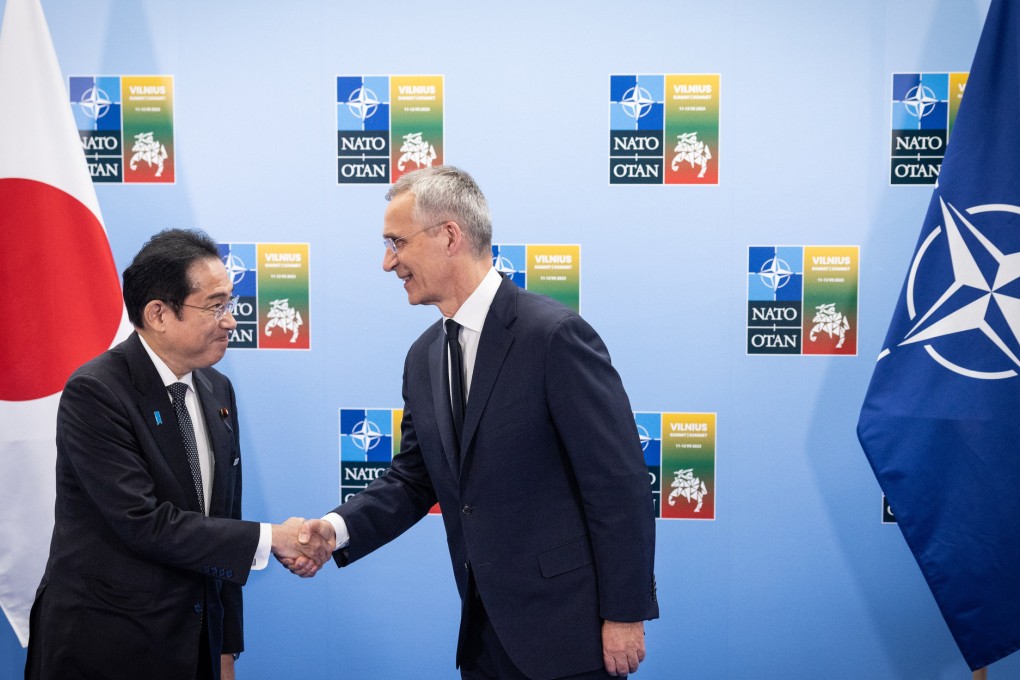Advertisement
China hits back against Nato’s ‘eastward march’ as Indo-Pacific leaders and alliance members meet at summit
- Australia, Japan, New Zealand and South Korea attend second day of security alliance meeting in Vilnius, prompting response from Beijing
- Tokyo and Nato agree to partner on security and cyber defence, while Japanese officials say they still have hopes for vetoed liaison office
Reading Time:4 minutes
Why you can trust SCMP
99+

Finbarr Berminghamin Vilnius
Nato drew four Indo-Pacific countries tighter into its orbit on Wednesday, as China hit back against the security alliance’s “eastward march”.
Leaders from Australia, Japan, New Zealand and South Korea met Nato’s 31 members in the Lithuanian capital Vilnius on the second day of the alliance’s annual summit, with China firmly on the agenda.
Ahead of the talks, Japanese Prime Minister Fumio Kishida said that “in the current severe international security environment the security of Europe and the Indo-Pacific are inseparable”.
“Japan and Nato share understanding that unilateral attempts to change the status quo by force or coercion will not be tolerated, regardless of where in the world,” Kishida said, hours after North Korea fired a suspected intercontinental ballistic missile (ICBM) towards Japanese waters.
A partnership agreement signed by Kishida and Nato Secretary General Jens Stoltenberg, seen by the Post, vowed to uphold “freedom, democracy, human rights, and the rule of law”.
Advertisement